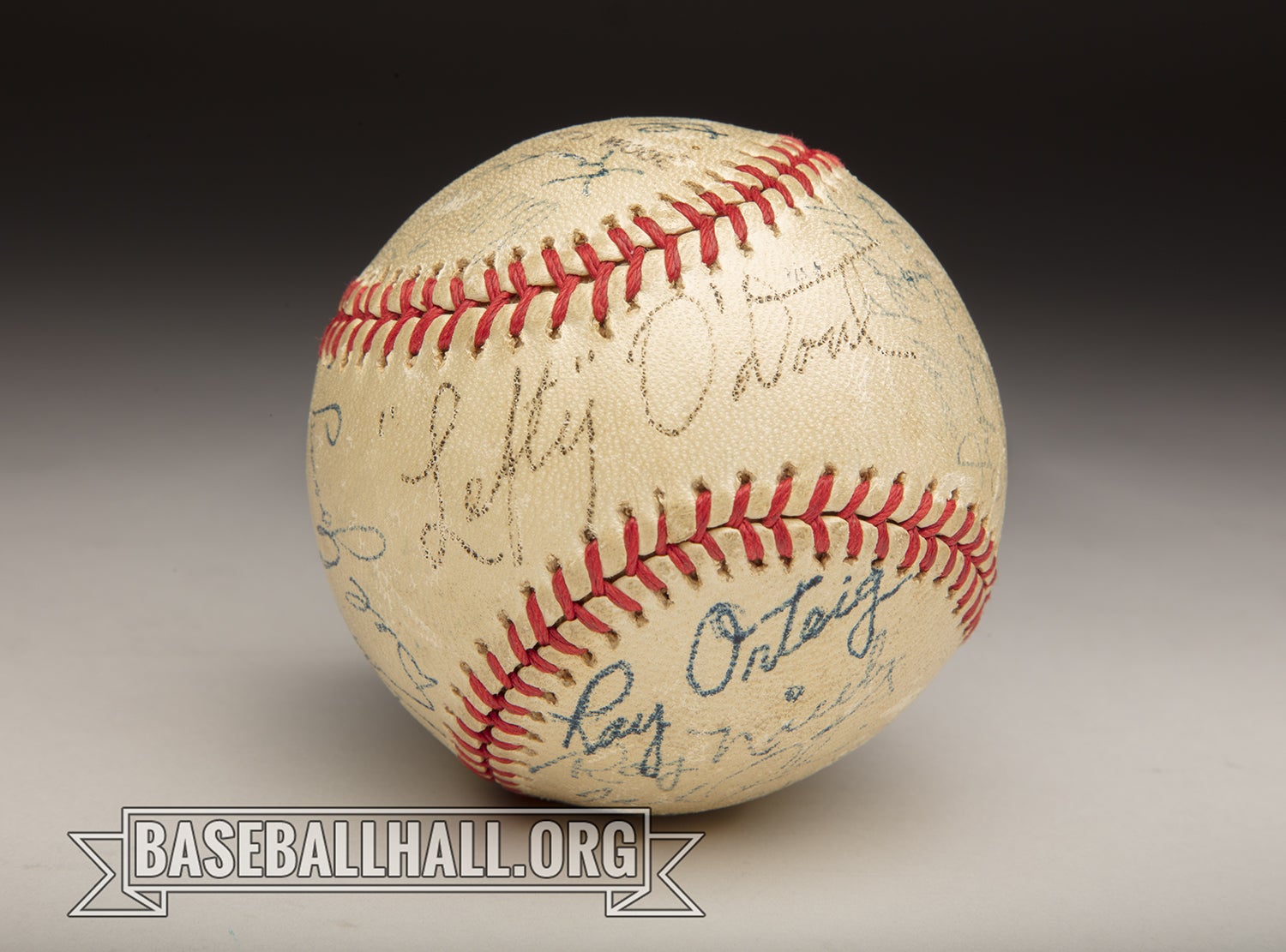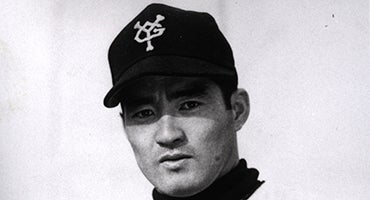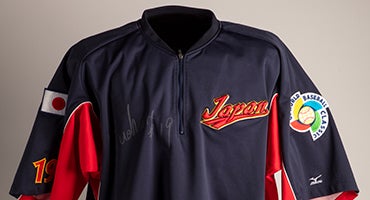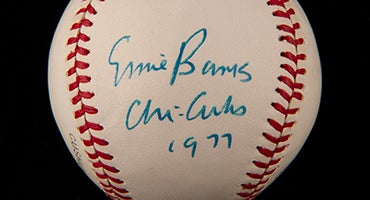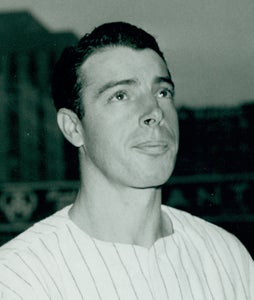- Home
- Our Stories
- #Shortstops: Lefty and the Yankee Clipper
#Shortstops: Lefty and the Yankee Clipper
Following his eighth World Series win and next-to-last season as an active player, Joe DiMaggio visited Japan with Frank “Lefty” O’Doul in November of 1950. The purpose of his visit to Japan was to entertain wounded and sick members of the United States armed forces and coach Japanese baseball players, which this photograph depicts as DiMaggio demonstrates his hitting technique to an unidentified Japanese player at Korakuen Stadium in Tokyo.
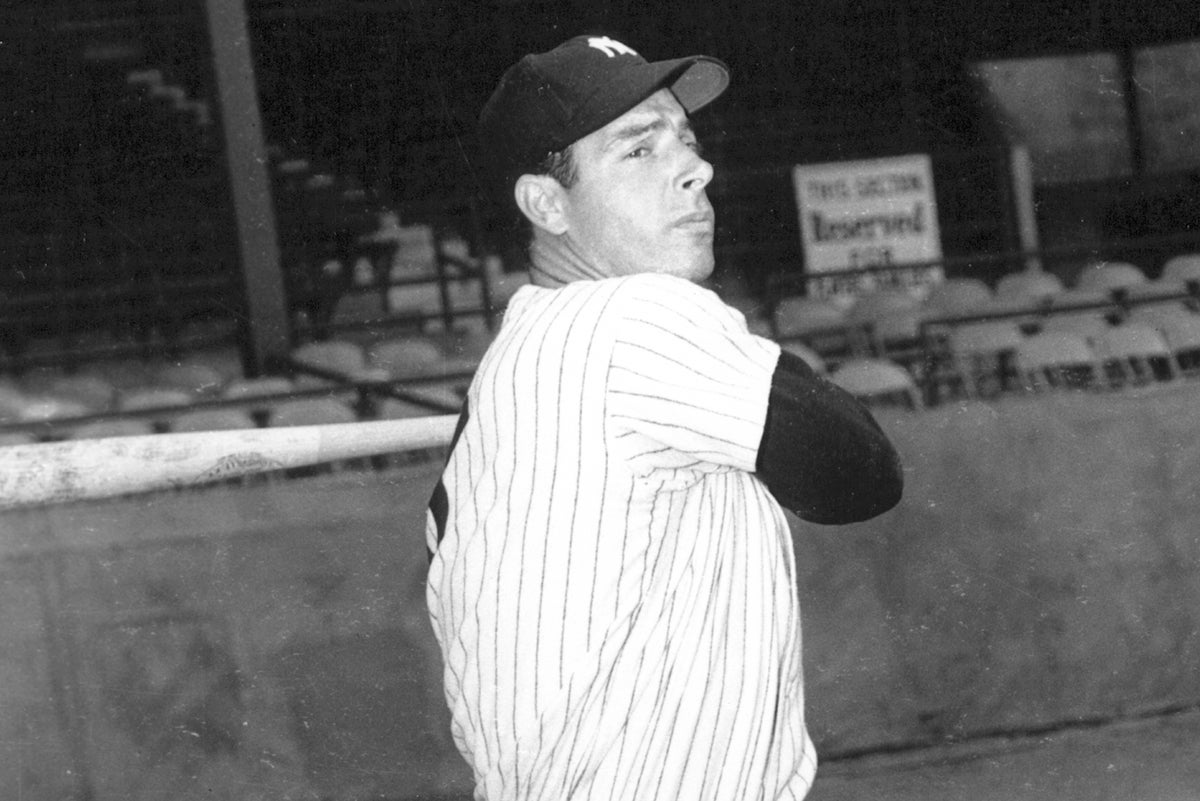
DiMaggio made several trips to Japan as a player, the winter of 1950 being the first. Following World War II and amid the Korean Conflict, Japan was occupied by the U.S. and had become a strategic base for American troops and supplies. It was critical that the relationship and goodwill between the U.S. and Japan continue, and baseball was deemed the perfect medium to strengthen U.S-Japanese relations.
Baseball was used after the war to bring the two nations together; both Japanese professional and amateur baseball were started again by U.S. occupational forces immediately after the war and interdisciplinary games between American and Japanese servicemen were encouraged. General Douglas MacArthur, an avid baseball fan himself, knew the sport had been incredibly popular in Japan before the war. He believed reviving baseball in Japan would divert attention from the aftermath of World War II and official measures were taken to encourage the cultural exchange of baseball to continue.
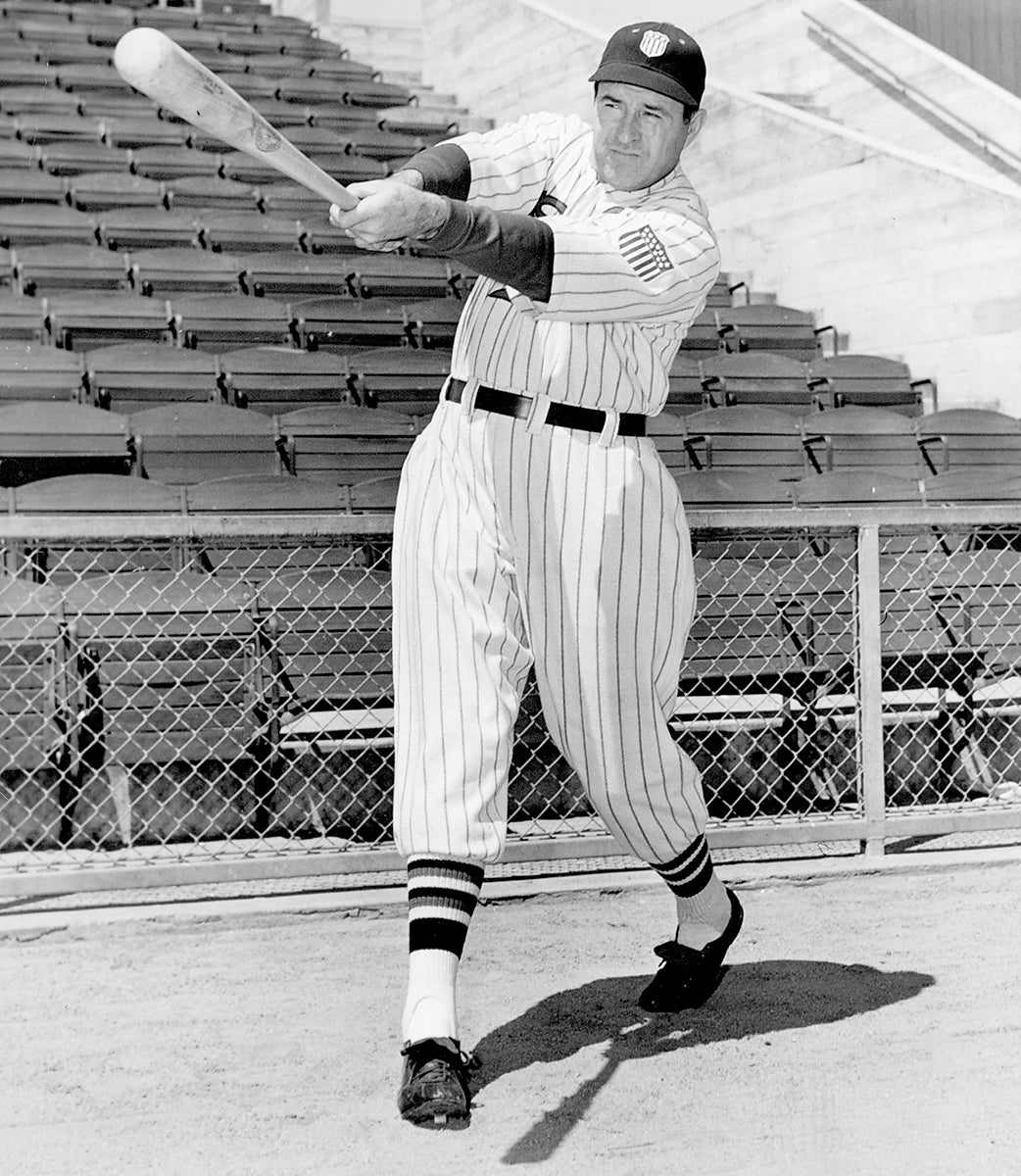
Chosen to serve as baseball’s official U.S. goodwill ambassador to Japan, O’Doul was a passionate pioneer of spreading the popularity of baseball in Japan who made some 30 trips to Japan in his lifetime, first returning to postwar Japan in 1949.
O’Doul, who is also seen in the background of this photograph, was a former New York Yankees pitcher but was more known for his hitting, having compiled a .349 career batting average over 11 big league seasons, including two National League batting titles. O’Doul began visiting Japan in the 1930s for off-season barnstorming tours and became an advocate for growing the game in Japan, writing a manual full of information on creating a baseball team that largely contributed to the Japanese Baseball League’s creation in 1936.
Before DiMaggio was signed by the Yankees, he played for O’Doul – then a manager – with the minor league San Francisco Seals in 1935. O’Doul was a well-known and respected hitting coach, although when given credit at an awards banquet for DiMaggio’s success and swing, O’Doul said: “I was just smart enough to leave Joe alone.”
DiMaggio would return to Japan with O’Doul in 1951 and again in 1954 on his honeymoon following his marriage to Marilyn Monroe, also accompanied by O’Doul and his wife Jean.
Laura Polglase is a 2024 programming intern in the Frank and Peggy Steele Internship Program for Leadership Development

